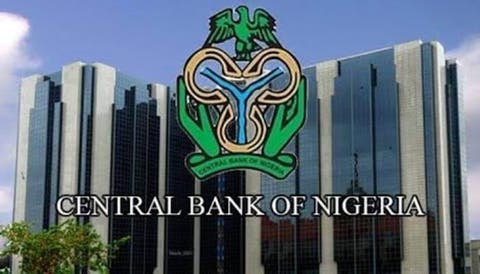
After initial postponements, the Central Bank of Nigeria (CBN) has tentatively fixed its first Monetary Policy Committee (MPC) meeting since the appointments of the CBN Governor, Olayemi Cardoso and the Deputy Governors last year, for February 26th and 27th, 2024.Ahead of the meeting, the CBN in a statement by the Acting Director, Corporate Communications Department, Mrs. Hakama Sidi Ali, disclosed that the apex bank held a two-day strategic session for members of the MPC, preparatory to their first meeting under the tenure of Cardoso.
However, all eyes would be on the apex bank whose Board has not been constituted and the tenure of previous MPC members expired last year, to see if the CBN Governor and his deputies are enough to form a quorum for the meeting that among other mandates, is responsible for making interest rate decisions and determine appropriate stance of policy in the short to medium term.

Section 12 (1) of the CBN Act 2007, categorically states that: “In order to facilitate the attainment of the objective of price stability and to support the economic policy of the federal government, there shall be a Committee of the Bank known as the MPC.(2) The MPC shall consist of- (a) the Governor of the Bank who shall be the Chairman;(b) the four Deputy Governors of the Bank;(c) two members of the Board of Directors of the Bank;(d) three members appointed by the President; and(e) two members appointed by the Governor.(3) The MPC shall have responsibility within the Bank for formulating monetary and credit policy.(4) The appointment of a member of the MPC pursuant to Sub-section 2 (d) and (e) of this section, the remuneration, filling of temporary vacancies, qualification, tenure of office and disqualification shall be subject to the same terms as are stipulated for a Director under sections 10 and 11 of this Act.Presently, apart from the CBN Governor and the four deputy CBN governors, the other seven members of the committee as stipulated by the CBN Act, have not been appointed.
Furthermore, Ali in the statement, disclosed that the strategic session was aimed to brainstorm and engage in an in-depth discussion about the committee’s objectives.She revealed that the critical focus areas during the retreat included deliberations on the strategic plan to effect necessary improvements in the monetary policy transmission mechanism.According to her, the sessions were facilitated by former MPC members, monetary policy communication specialists at the IMF, and Directors of Departments critical to the MPC process.
“The valuable insights gained from these discussions will significantly contribute towards the robustness of the forthcoming MPC meetings,” she noted.The committee held its last meeting in July 2023, when the benchmark interest rate was raised by 25 basis points to 18.75 per cent from 18.50 per cent.According to the “MPC Meetings Tentative Calendar for 2024,” which was posted on the apex bank’s website, a total of six meetings had been slated to hold in the year.
The calendar of meetings on the CBN website indicated that the meetings was scheduled for February, March, May, July, September and November 2024.Precisely, the first is slated for February 26 and 27, 2024; the second for March 25 and 26; and the third meeting for May 20 and 21.The fourth MPC meeting is billed for July 22 and 23; fifth for September 23 and 24 as well as November 25 and 26 for the last meetings.Earlier in November, there were indications that the 294th meeting of the CBN MPC which was slated for between November 20 and 21 may not as scheduled, raising concerns among investors.
That was the second consecutive time that the MPC meeting would be skipped since Cardoso formally assumed office on September 22, 2023 – three days to the 293rd MPC which was scheduled between September 25 and 26 – and failed to hold.However, the inability of the central bank to convene the MPC meetings under its new leadership had continued to generate concerns among analysts and stakeholders amid the current economic hardship fueled partly by the removal of
fuel subsidy, rising inflation, FX liquidity challenges, and the increasing cost of funds in the economy among others.
In an interview with THISDAY, Managing Director/Chief Executive, Dignity Finance and Investment Limited, Dr. Chijioke Ekechukwu, however, cautioned the committee against making hasty policy pronouncements.He said, “Many factors are contributing to the macroeconomic headwind, most of these factors do not have monetary policy solutions and therefore not controlled by CBN. Holistic solutions must be sought in arriving at economic solutions.“The U.S, Eurozone, China, and other developed economies are experiencing a major drop in their inflation rates, while Nigeria’s inflation rate continues to increase month on month irrespective of measures taken by the apex bank.”
Also, Managing Director/Chief Executive, SD&D Capital Management Limited, Mr. Idakolo Gbolade, said the inability of the CBN to hold the meetings so far may send mixed signals to both local and foreign investors regarding the direction of the economy.He said, “The MPC meeting is the official policy direction platform to project the monetary policies of the Federal government through the CBN and its positions on economic issues go a long to determine various positions taken by critical stakeholders in the economy.
“The inability of the CBN to hold the meeting so far might send mixed signals to both local and foreign investors as regards the policy direction of the economy.“Although the CBN has been communicating its policies in the past couple of weeks the MPC meeting is critical and should held regularly. If the new CBN Management team fails to hold its maiden MPC meeting this week, it could cause anxiety in the economy.”For his part, Wealth Management and Business Development Consultant, Mr. Ibrahim Shelleng, said lack of clear guidance on interest rates, inflation targets, and other monetary policies may result in market volatility and reduced investor confidence.
“Additionally, the absence of timely policy adjustments in response to economic changes could impede the central bank’s ability to effectively manage inflation, exchange rates, and overall economic stability.

In the long run, this could have negative repercussions on the economy, hindering sustainable growth and development.”

Be the first to comment